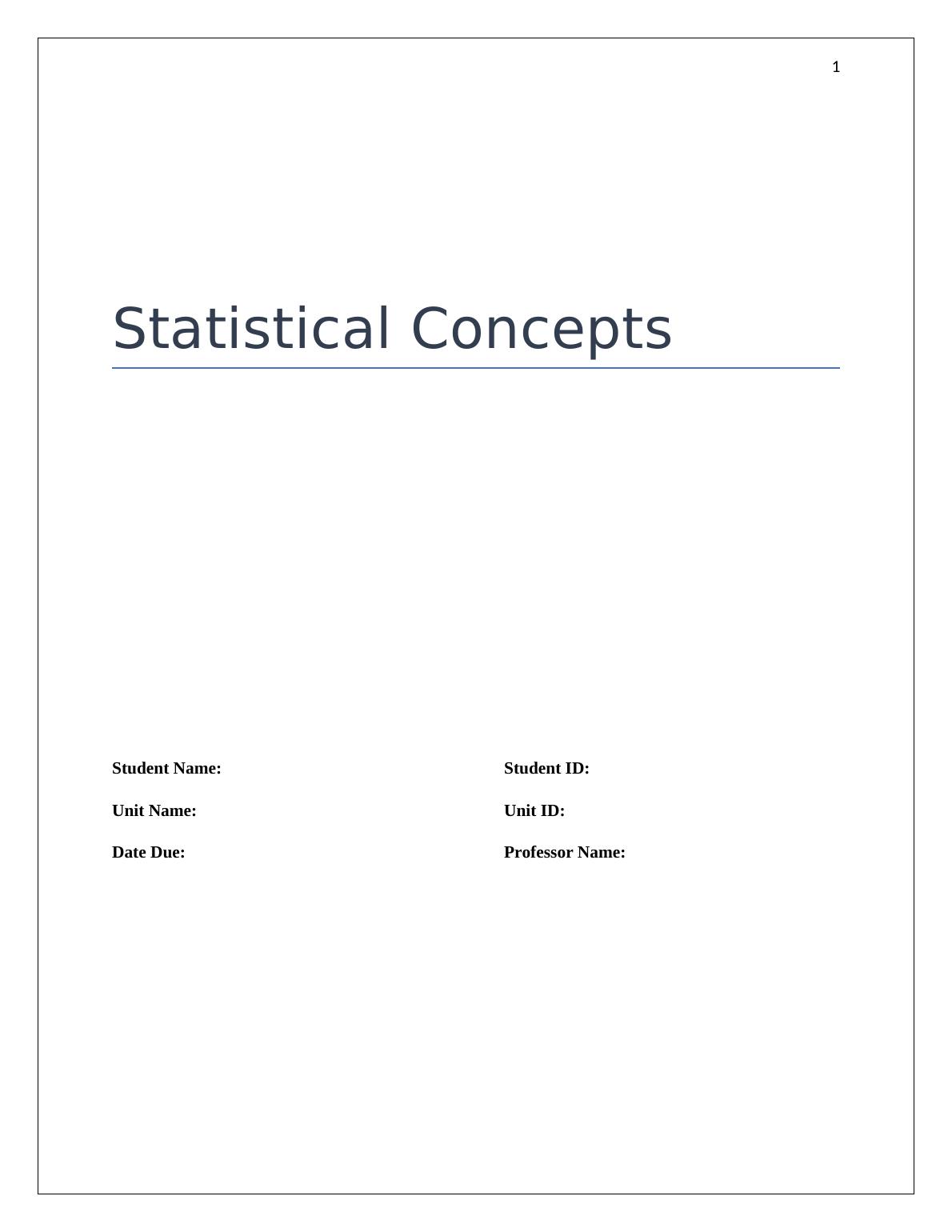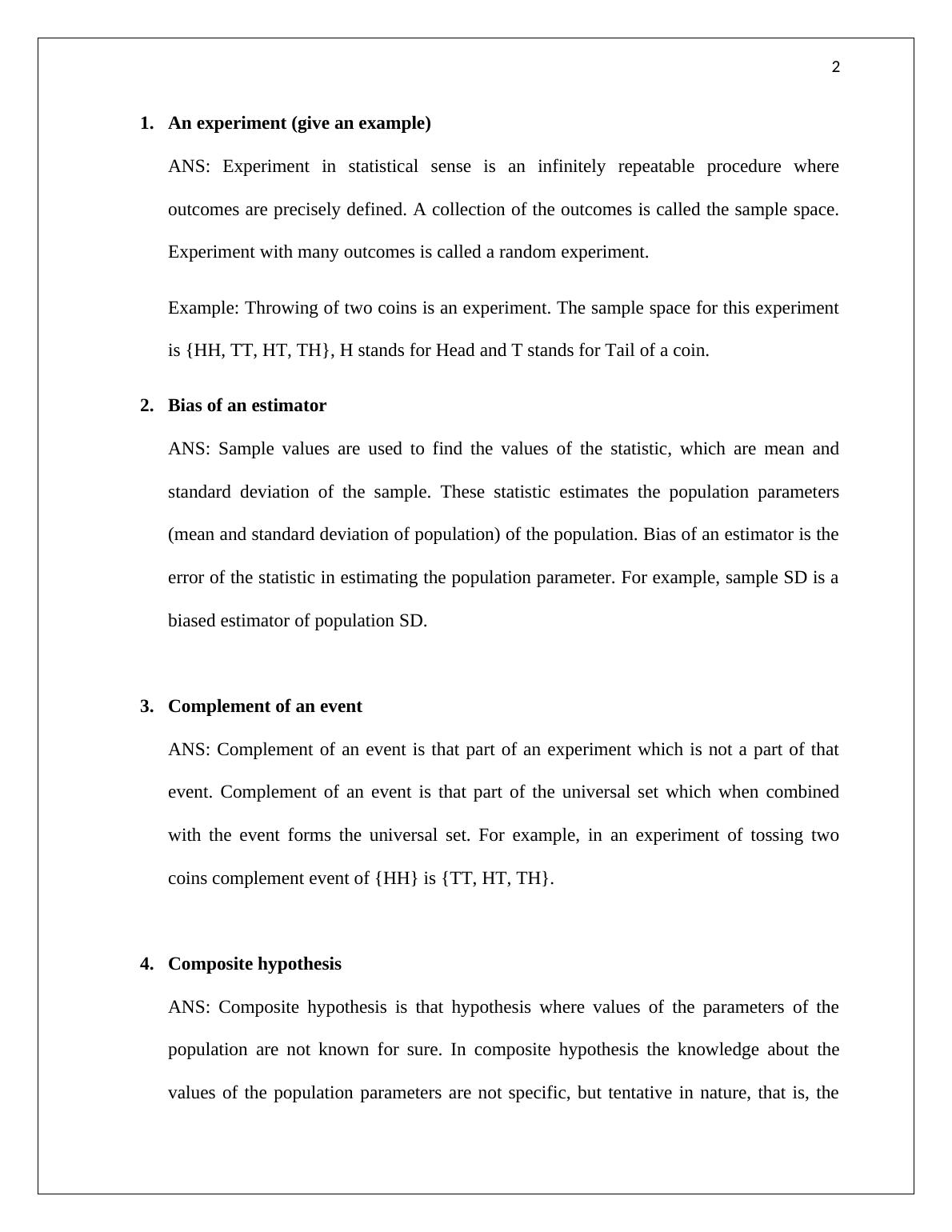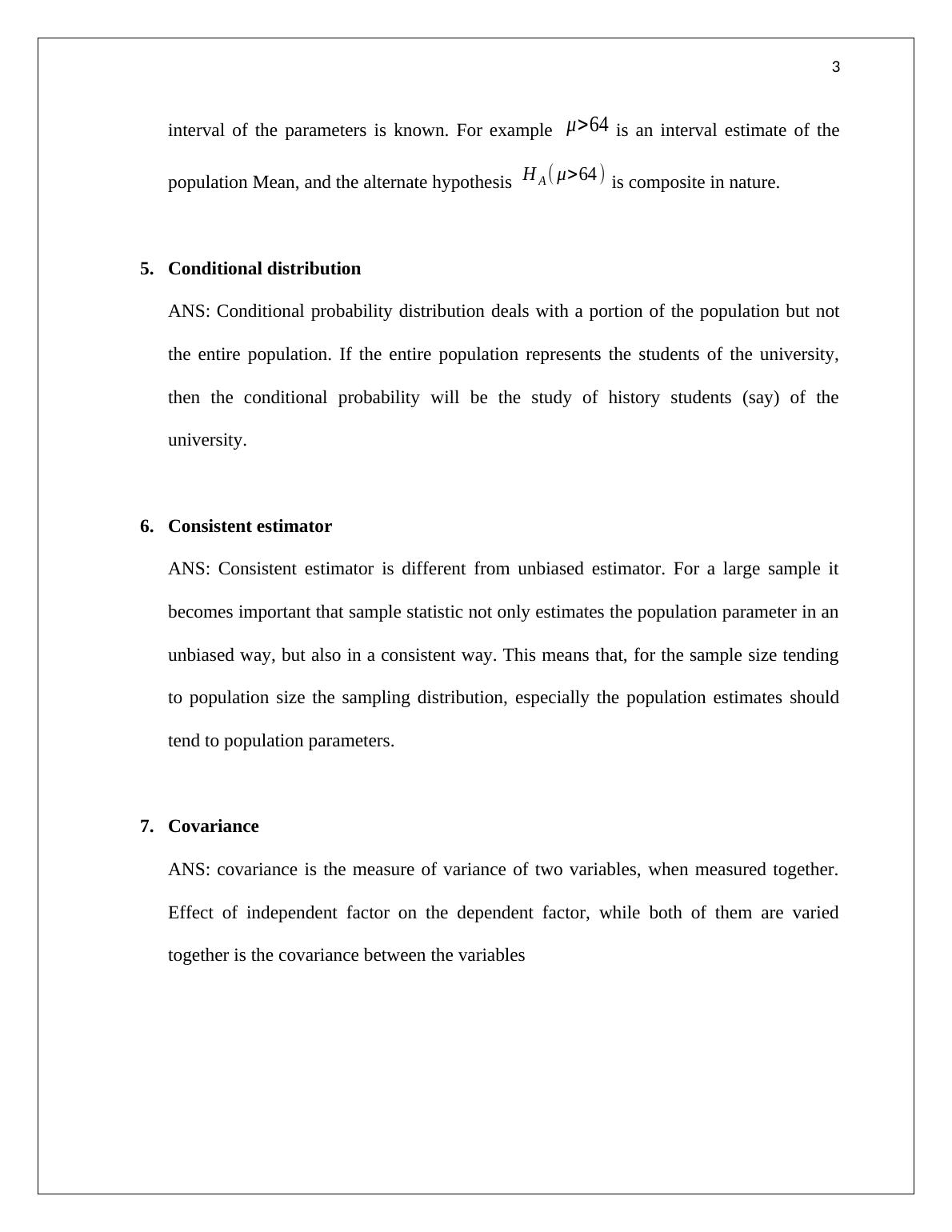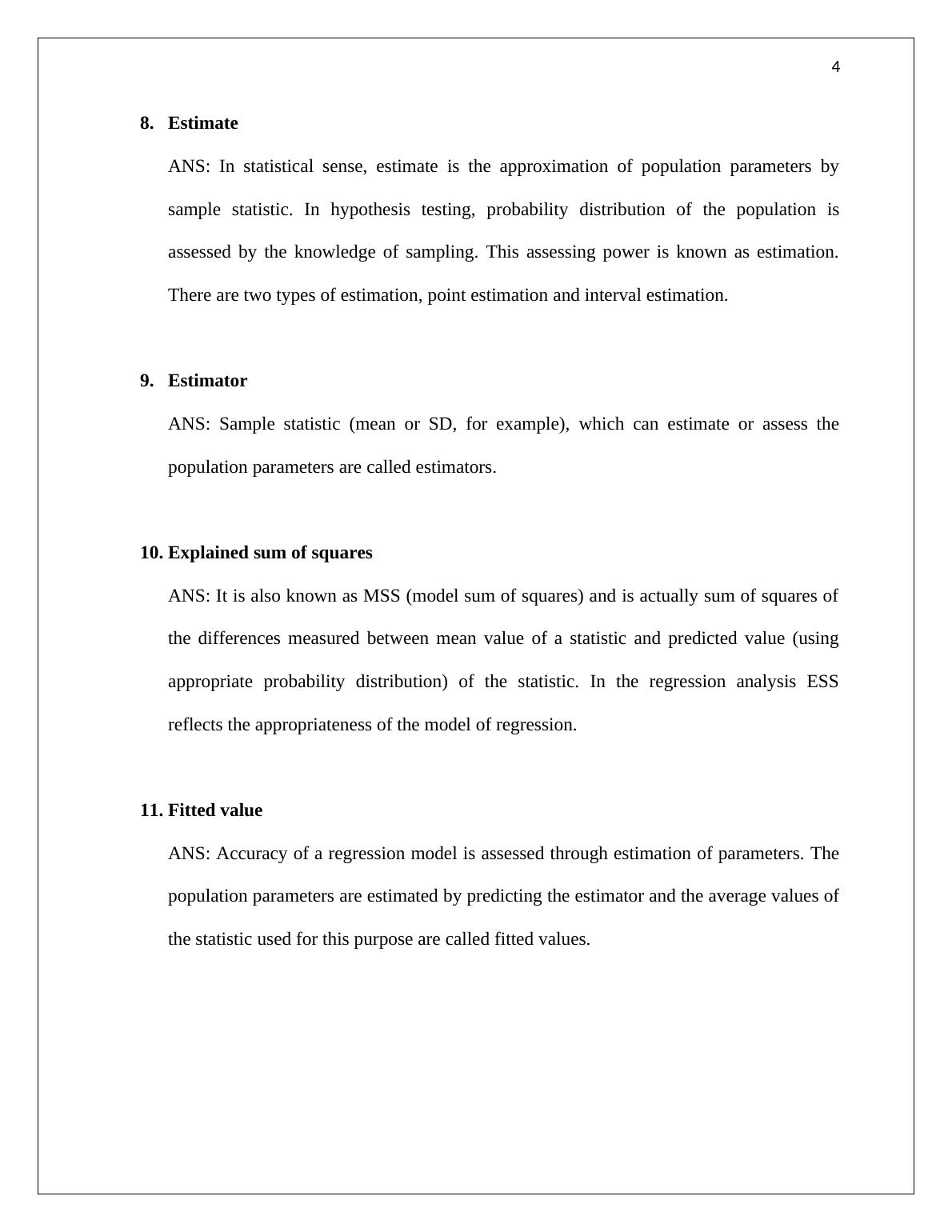Assignment on Statistical Concepts
Added on 2021-06-17
11 Pages1803 Words23 Views
1Statistical ConceptsStudent Name:Student ID:Unit Name:Unit ID:Date Due:Professor Name:

21.An experiment (give an example)ANS: Experiment in statistical sense is an infinitely repeatable procedure whereoutcomes are precisely defined. A collection of the outcomes is called the sample space.Experiment with many outcomes is called a random experiment.Example: Throwing of two coins is an experiment. The sample space for this experimentis {HH, TT, HT, TH}, H stands for Head and T stands for Tail of a coin.2.Bias of an estimator ANS: Sample values are used to find the values of the statistic, which are mean andstandard deviation of the sample. These statistic estimates the population parameters(mean and standard deviation of population) of the population. Bias of an estimator is theerror of the statistic in estimating the population parameter. For example, sample SD is abiased estimator of population SD.3.Complement of an eventANS: Complement of an event is that part of an experiment which is not a part of thatevent. Complement of an event is that part of the universal set which when combinedwith the event forms the universal set. For example, in an experiment of tossing twocoins complement event of {HH} is {TT, HT, TH}.4.Composite hypothesis ANS: Composite hypothesis is that hypothesis where values of the parameters of thepopulation are not known for sure. In composite hypothesis the knowledge about thevalues of the population parameters are not specific, but tentative in nature, that is, the

3interval of the parameters is known. For example μ>64is an interval estimate of thepopulation Mean, and the alternate hypothesis HA(μ>64)is composite in nature.5.Conditional distributionANS: Conditional probability distribution deals with a portion of the population but notthe entire population. If the entire population represents the students of the university,then the conditional probability will be the study of history students (say) of theuniversity.6.Consistent estimatorANS: Consistent estimator is different from unbiased estimator. For a large sample itbecomes important that sample statistic not only estimates the population parameter in anunbiased way, but also in a consistent way. This means that, for the sample size tendingto population size the sampling distribution, especially the population estimates shouldtend to population parameters. 7.CovarianceANS: covariance is the measure of variance of two variables, when measured together.Effect of independent factor on the dependent factor, while both of them are variedtogether is the covariance between the variables

48.EstimateANS: In statistical sense, estimate is the approximation of population parameters bysample statistic. In hypothesis testing, probability distribution of the population isassessed by the knowledge of sampling. This assessing power is known as estimation.There are two types of estimation, point estimation and interval estimation.9.EstimatorANS: Sample statistic (mean or SD, for example), which can estimate or assess thepopulation parameters are called estimators. 10.Explained sum of squaresANS: It is also known as MSS (model sum of squares) and is actually sum of squares ofthe differences measured between mean value of a statistic and predicted value (usingappropriate probability distribution) of the statistic. In the regression analysis ESSreflects the appropriateness of the model of regression. 11.Fitted valueANS: Accuracy of a regression model is assessed through estimation of parameters. Thepopulation parameters are estimated by predicting the estimator and the average values ofthe statistic used for this purpose are called fitted values.

End of preview
Want to access all the pages? Upload your documents or become a member.
Related Documents
Mathematics Assignment- Probabilitylg...
|6
|703
|25
Sampling Techniques for Inference and Hypothesis Testinglg...
|3
|677
|212
Understanding Pearson Linear Correlationlg...
|6
|1390
|141
Statistics - Deskliblg...
|11
|807
|497
